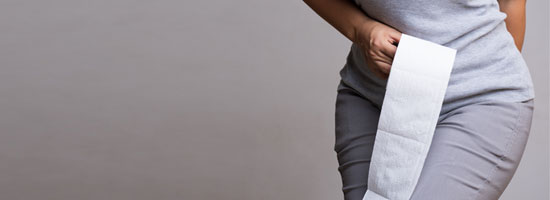
Hemorrhoids are swollen, enlarged veins inside the rectum or located outside the rectum around the anus. They are very similar in nature to the varicose veins that often develop on the lower limbs. They are very common and an estimated 75% of adults will develop one or more hemorrhoids at various times throughout life.
Causes
Many cases of hemorrhoids are related to eating a low-fiber diet. The stools produced from a low-fiber diet tend to cause constipation and the need to strain to pass them, which can lead to the development of hemorrhoids. Hemorrhoids also frequently develop during pregnancy, presumably due to the extra pressure placed on the abdomen by the growing fetus. Some cases of hemorrhoids appear to be related to spending long periods of time sitting on toilets while reading, and they are also not uncommon in bodybuilders who regularly lift very heavy weights. However, in some cases, there is no apparent cause.
Symptoms
External hemorrhoids tend to itch and sometimes can be painful. They may also bleed. Internal hemorrhoids tend to bleed and sometimes one will protrude into the anal opening, causing irritation and pain. If a hemorrhoid bleeds and the blood cannot find an escape route from the hemorrhoid, it will clot and form a hard lump, which may be very painful.
Treatment
You should never assume the blood you observe in the toilet, in your underwear, or in your stool is coming from a hemorrhoid because rectal bleeding can be a symptom of very serious life-threatening diseases. Always consult a doctor for confirmation that your bleeding is indeed coming from hemorrhoids.
Minor cases of hemorrhoids can be treated at home. Over the counter creams can be used to soothe any itching and irritation, but the real treatment revolves around increasing your fiber intake. Most nutritionists recommend eating at least five servings of vegetables every day, which should supply sufficient fiber. However, if you have difficulty in following this advice, whole-grain products, beans, and fiber supplements are other options.
If your hemorrhoids are painful or bleeding a lot, doctors have developed several minimally invasive methods to remove them, including:
- Rubber band ligation
- Sclerotherapy
- Heat coagulation using a laser
- Surgical removal
- Stapling
The best approach varies depending on individual patient factors and the size and number of hemorrhoids and needs to be selected after discussing all of the pros and cons with your doctor.
